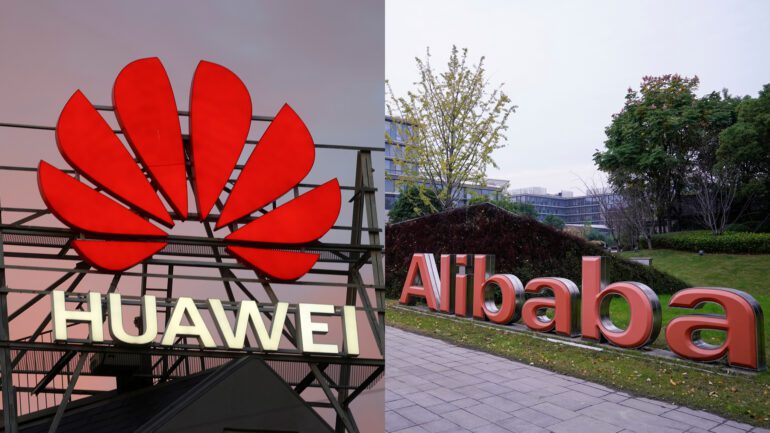TL;DR:
- Alibaba and Huawei unveil new AI products to strengthen their positions in the market.
- Alibaba Cloud introduces Tongyi Wanxiang, an AI imager, and ModelScopeGPT, an AI tool for developers.
- Huawei showcases the Panggu 3.0 AI model, prioritizing industrial applications.
- The rise of generative AI, triggered by OpenAI’s ChatGPT, fuels the development of AI products in China.
- Alibaba’s advancements position them as a frontrunner in the AI race, challenging American counterparts.
- The market is witnessing unprecedented growth and innovation, with the potential for a $7.3 billion boost to the global economy.
Main AI News:
In the competitive arena of artificial intelligence (AI), Chinese giants Alibaba Group Holdings and Huawei Technologies Co are making bold moves to solidify their positions. Recently, both companies unveiled new products that are set to shake up the industry and further ignite the AI frenzy.
Alibaba Cloud, the subsidiary of Alibaba Group, made a grand announcement at the World Artificial Intelligence Conference in Shanghai. They introduced Tongyi Wanxiang, an innovative imager that harnesses the power of AI. This cutting-edge technology will initially be available in beta form exclusively for enterprise customers, promising to revolutionize the way businesses operate. Tongyi Wanxiang is poised to compete with notable American counterparts such as OpenAI’s DALL-E and Midjorney Inc., which have already garnered significant global attention.
Meanwhile, Huawei showcased the third version of its Panggu AI model during its annual three-day developer conference in Dongguan. The Chinese tech titan aims to take a different approach with its AI offerings, focusing primarily on industrial applications rather than content creation. This strategic direction aligns with Huawei’s commitment to bolstering efficiency and safety inspections for freight wagons, providing invaluable support to local government services, and enabling more accurate weather forecasting.
The rise of generative AI has fueled the rapid development of AI products in China. OpenAI’s ChatGPT chatbot played a pivotal role in triggering the generative AI boom, and McKinsey estimates that this trend could contribute a staggering $7.3 billion annually to the global economy. Alibaba’s recent ventures, including the launch of ChatGPT, a text generator akin to Tongyi Qianwen, have reinforced the company’s position as a frontrunner in the AI race.
In addition to Tongyi Wanxiang, Alibaba Cloud also unveiled ModelScopeGPT, an indispensable AI tool designed specifically for developers. This innovation underscores Alibaba’s commitment to empowering the AI community and nurturing a thriving ecosystem.
The advancements made by Alibaba and Huawei signify the transformative power of AI in shaping the future of industries. As these Chinese tech behemoths vie for market dominance, the global AI landscape is set to witness unprecedented growth and innovation. The stage is set, and the race is on. Who will emerge as the true champion of AI? Only time will tell.
Conclusion:
Alibaba and Huawei’s latest AI product unveilings demonstrate their commitment to the rapidly expanding AI market in China. By introducing innovative technologies like Tongyi Wanxiang, ModelScopeGPT, and the Panggu 3.0 AI model, these companies are positioning themselves at the forefront of AI development. Their focus on industrial applications and content creation sets them apart from their American counterparts. With the generative AI boom and the projected economic impact, it is evident that the AI market is poised for significant growth and presents vast opportunities for both Chinese and global industries. The race for AI dominance is intensifying, and it will be intriguing to observe how these developments shape the future of the market.

